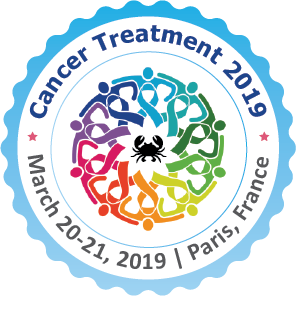
Aylin Erol
Dokuz Eylul University, Turkey
Title: Sesquiterpene lactones as a candidate anti-cancer agent in childhood cancer
Biography
Biography: Aylin Erol
Abstract
Despite improvements in treatment of pediatric cancers, new treatment strategies are
needed. Sesquiterpene lactones (SL) are natural compounds with proofs of anti-
cancer effects in adults. The effect of SL on pediatric cancers remains unclear. The aim of
this study is to evaluate the in vitro effects of dehydroleucodine (DhL) and Inula viscosa
extracts (containing high levels of active SL) in pediatric cancers. Inula viscosa plant
extract (InV), DhL (sigma) and cisplatin (Kocak) (CDDP) were evaluated on various
pediatric cell lines. Neuroblastoma cell line KELLY, Ewing sarcoma cell line SK-ES
and hepatocellular carcinoma cell line Hep-G2 were cultured. After treating with these
chemical compounds, MTT cell viability assay, Annexin V+PI test by flow cytometry
were performed. Morphological changes of cells were investigated using Toluidine blue
staining. Immunohistochemistry was performed to determine proliferation index (Ki67)
and apoptosis mechanisms (Caspase 3, 8 and 9). The statistical analysis of all findings
was evaluated between and within groups by Mann-Whitney U test. The p value less than
0.05 were considered statistically significant. In Kelly, DhL and InV showed cytotoxic
effect as CDDP. The underlying mechanism of this effect was on inducing apoptosis
rather than anti-proliferation. In HEP-G2; CDDP, InV, and DhL decreased proliferation,
led to apoptosis especially via intrinsic pathway. For SK-ES; DhL and InV showed less
anti-proliferative effect than CDDP. However, remarkable apoptosis percentiles were
found in cells. According to the results of this in vitro study, InV, and DhL are found to
be candidate anti-cancer agent on pediatric cancer cells with their cytotoxic effects. This
effect is planned to be evaluated in further studies.

